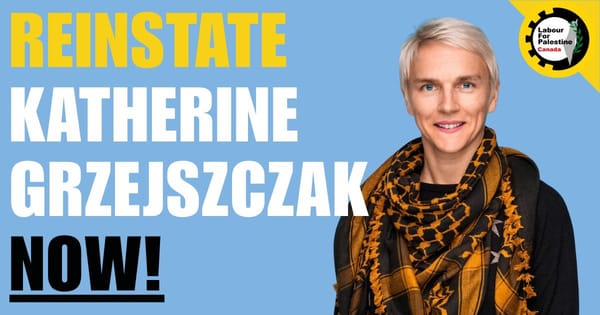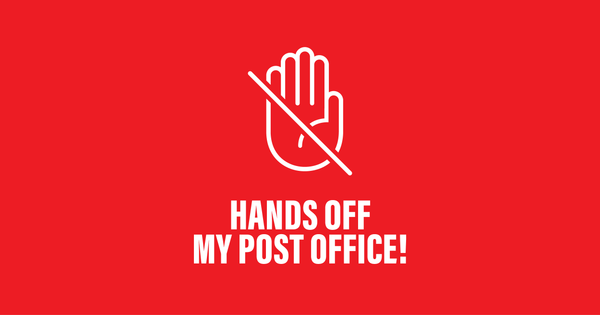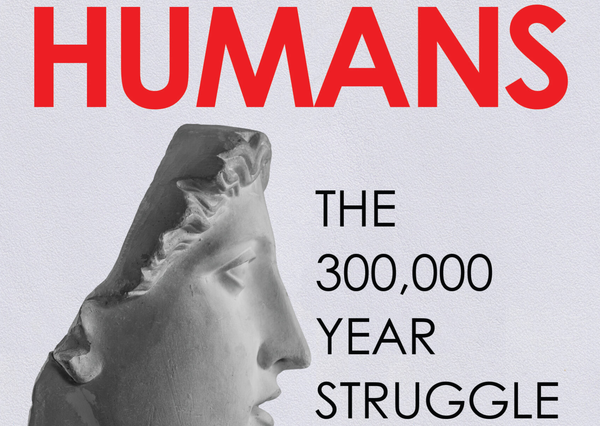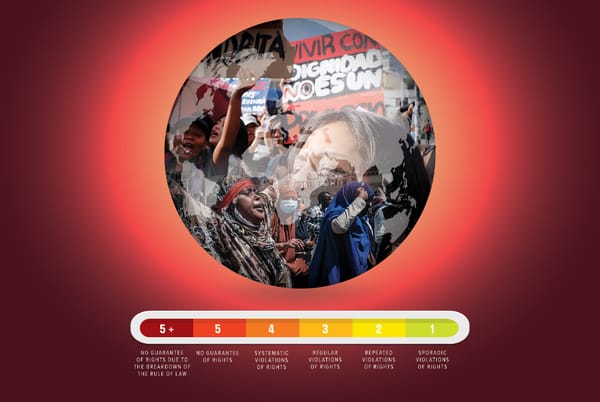
In December, the government of New Brunswick rammed through legislation to end the defined benefit pension plans of roughly 16,000 workers in five CUPE locals. In perhaps one of the most brazen violations of collective bargaining rights in 2023, the Progressive Conservative government of Blaine Higgs imposed legislation that violated agreements previously signed with two of the affected CUPE locals — Locals 2745 and 1253.
Public sector workers in New Brunswick now have a serious fight on their hands.
The law in question — Bill 17, the Pension Plan Sustainability and Transfer Act — forces two CUPE education locals and three locals in the New Brunswick Council of Nursing Home Unions into a process to determine a new pension plan covering union members. The bill continues a project of ending defined benefit pensions for public sector workers that Higgs has pursued since 2014 when he was provincial finance minister.
The plans from which workers may “choose,” however, are pre-determined. Union members will be compelled to select one of three “shared-risk” pension schemes, which, as the adjective suggests, risk leaving workers with reduced benefits in the future. In short, instead of having access to a guaranteed benefit at the time of retirement, workers are about to be transferred into an inferior plan that could leave them without adequate post-retirement incomes.
The impacted workers include school custodians, maintenance workers, administrative staff, school bus drivers and nursing home workers, all of whom receive modest pensions to begin with owing to their relatively low salaries, according to the union.
Throughout the battle over Bill 17, Higgs and his government have claimed that the pension conversion won’t impact current retirees. In fact, the pension benefits of current public sector retirees could be at risk as well.
According to Mark Janson, senior pensions officer for CUPE, New Brunswick’s model is unique in allowing pensions that were promised as defined benefit to be retroactively converted to “targeted benefit” or “shared-risk.”
The province introduced Bill 17 in late November and ultimately managed to pass the bill — after extending the legislative session by two days and then limiting debate — by a vote of 28 to 19 on December 12. The bill is expected to come into force in February.
This latest fight over public sector pension plans in New Brunswick dates back to the contentious strike by 22,000 CUPE members in October of 2021. At the time, the strike represented one of the first “post-pandemic” labour battles, as the Tory provincial government in Fredericton attempted to impose the costs of the pandemic on public sector union members.
To ultimately end the 16-day strike, the government withdrew its demand for pension concessions and agreed to further negotiations outside of that bargaining round. CUPE and the province signed a memorandum of agreement (MOA) promising to “negotiate in good faith the specific terms and conditions of a new pension plan.” In the event that the parties failed to reach agreement on transitioning members to a new plan, the MOA also outlined a procedure for sending the dispute to a third party board of actuaries to settle.
It is CUPE’s entirely reasonable contention that, with Bill 17, the Higgs government has violated this provision of the MOA by unilaterally legislating the false choice between “shared-risk” pension arrangements now being imposed on union members. Higgs’ government previously claimed that CUPE was dragging its feet in negotiations, thus necessitating a legislative intervention. While the MOA set a start date of June 2022 for pension negotiations to begin, it did not mandate a deadline.
Nevertheless, the government maintains that it has not violated the collective agreement signed with the union, given that it is the MOA that contains the commitment to negotiate the path to a new pension plan. However, an MOA signed as part of a collective agreement has the same force of law. Beyond this, CUPE members’ current pension plans are part of their collective agreements. Legislatively forcing members into new pension plans is therefore a violation of these agreements.
The government has also claimed that Bill 17 is necessary to solve funding shortfalls and maintain the solvency of the current pension funds. Yet, a labour arbitration decision from June 2021 found that it was the government itself that caused the funding issue impacting CUPE 1253’s pension by failing to meet its funding obligations. Under-funding has seemingly created the pretext for an attack on public sector union members and current pensioners.
Now that the legislation has been forced through, CUPE and the labour movement in New Brunswick, as well as in Canada more broadly, must respond.
Surely, CUPE will pursue all legal options to prevent the government from moving ahead with its plan to end defined benefit pensions for these thousands of public sector workers. However, union members should be prepared for the prospect of litigation coming up short. To beat back the Higgs’ government attack on pensions, mass mobilization on the level of the 2021 strike will likely be necessary.
In early December, CUPE raised the possibility of “illegal” (i.e., wildcat) strikes to protest the government’s bill.
CUPE’s regional director, Sandy Harding, commented at the time: “I’m sure you can appreciate that as union leaders, we’re not going to encourage our members to do illegal action.” “They believe what the government is doing is illegal. We believe it as well … Our members will decide what they’re going to do to match that illegal action,” she added.
In response, the government was clear that it would seek an injunction if CUPE members engaged in job action. Yet with Bill 17 coming into force in less than a month, strike action may prove all the more necessary.
As CUPE maintains, Bill 17 is a direct attack on the collective bargaining rights enshrined in the Charter of Rights and Freedoms. Like many other governments in Canada, it seems Higgs’ Tories see no problem with violating those rights and dealing later with the consequences. It’s up to labour to raise the cost of proceeding.
Recent Class Struggle Issues
- January 8 | Ontario’s Hospital Labour Force Is At A Breaking Point
- January 3 | How Did Canadian Workers And Unions Fare In 2023?
- Dec. 18, 2023 | Alberta’s Right-Wing Approach To Labour Is Unprecedented In Canada
- Dec. 11, 2023 | Sweden Is Giving Elon Musk A Taste Of Union Strength







